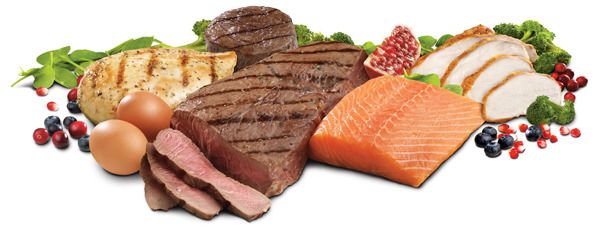One of the key requirements for a healthy life is the daily dose of nutrients. However, a woman’s nutritional needs are quite different from her counterpart, especially during the 3 phases of her life – onset of menstruation, pregnancy and menopause demands the highest nutrition. Take a note of the top 6 nutrients that every woman must include in her diet through the 3 key phases of her life.

Credit: SPRAYAVIT.COM
#1 Iron: Did you know that a lot of iron is lost from a woman’s body during menstruation every month? Hence, during initial days of menstruation consume foods rich in this mineral to prevent iron-deficiency anaemia. Also, iron is important for expectant and nursing mothers as it aids in the formation of hemoglobin, thus helping in the transportation of oxygen to various parts of the body.
Tip: The recommended dietary allowance for iron in normal adult women is 21 mg/day and during pregnancy it is 35 mg/day. To fulfil this dietary recommendation, you should consume more green leafy vegetables, sesame seeds, legumes, jaggery, meat, fish and egg.

Credit: fdfriends.com
#2 Vitamin C: Chemically known as ascorbic acid, vitamin C helps in the synthesis of collagen (skin protein), bone and teeth calcification, improves your immune action and enhances absorption of iron in the body. As it is loaded with antioxidants, it prevents a wide range of infections and diseases.
Tip: The dietary recommendations of vitamin C are different for different stages; normal adult women require 40 mg, pregnant women need 60 mg and nursing mothers require around 80 mg of vitamin C per day. To meet your daily requirement of vitamin C, consume citrus fruits (guava, amla, oranges), broccoli, lemons, bell pepper and kale or karam sag.
#3 Calcium: Women are more susceptible to suffer from osteoporosis due to loss of calcium from the body after menopause. Calcium plays a key role in the maintenance of neuromuscular function and bone density. Hence, adult women and those in their menopause should consume more of calcium-rich foods to prevent osteoporosis later in their life.
Tip: While a normal adult woman requires 600 mg of calcium per day, the recommended dietary allowance during pregnancy, lactation and pre-menopause, increases to 1000-1200 mg of calcium per day. So include milk, curd, cheese, ragi, soybean, amaranth, spinach, drumstick leaves and almonds in your meals. Here are 9 great calcium sources for vegans.

Credit: Before It's News
#4 Vitamin D: The fat-soluble vitamin D is required by the body for absorption of calcium (essential for normal bone formation). As deficiency of this vitamin leads to softening of the bones and osteoporosis in women, it is important to meet the daily requirement of this vitamin.
Tip: To get your daily dose of vitamin D, all you need to do is bask in the sun (preferably early morning) for around 15 minutes. Apart from this, consumption of foods rich in this vitamin - milk (100 IU in one 8 ounce glass), yogurt (80 IU), egg yolks (one yolk offers 20 IU of vitamin D), salmon (400 IU) and vitamin-D fortified foods might also do the trick. However, make sure that the daily required dose of this vitamin i.e., 2000 IU/day is achieved at the end of the day.
#5 Folic acid: The deficiency of folic acid (vitamin B9) in pregnant women might lead to birth defects in the fetus. This is because, it helps in proper development of fetal brain and spinal cord. Apart from this, folic acid is important for the production, maturation and development of red blood cells and thus, prevention of anemia. So women, especially girls in their growing years (after onset of menstruation) and pregnant women, should never miss to add this vitamin to their daily diet.
Tip: This essential vitamin can be obtained from foods such as dark green leafy vegetables (like palak), beans and legumes (peanuts, chavli, rajma, dals, etc) and fruits like lemons, bananas, etc. The recommended dietary allowance of folic acid in adult women is 200 mcg/day and for pregnant and nursing mothers is 500 mcg and 300 mcg per day respectively.

Credit: The Art of Unity
#6 Protein: There are numerous health benefits of protein, other than helping in building muscles. Women should consume protein to help prevent muscle tissue from breaking down and help repair tissue that has been damaged. Apart from this, protein supply energy to the body, build strong immune health and maintain weight.
Tip: In addition to non-vegetarian dietary sources such as meat, fish and eggs, protein can be availed in high quantities from vegetarian sources as well. These include quinoa, chickpeas, oats, flaxseeds, dairy products and legumes. It is important to fulfil your daily requirement of proteins i;e, 55 gm for normal adult women and 82 gm for pregnant women on a daily basis.
Source: The Health Site